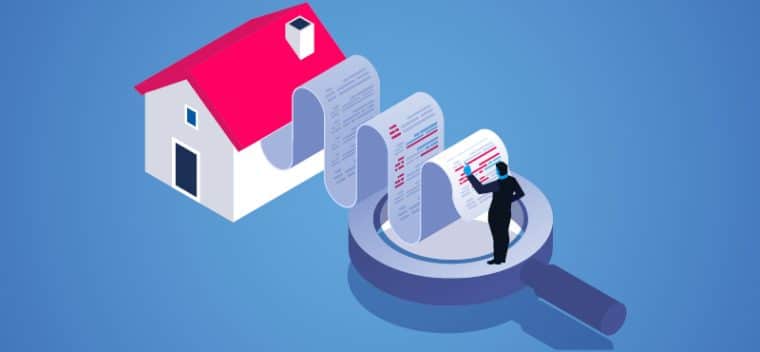Buying a home can be a complicated and overwhelming process, especially if you are a first-timer. You’ll be bombarded with words and concepts that you’ve probably never heard of, including the phrase “earnest money deposit” or “EMD.” It’s important to familiarize yourself with the concept of earnest money and how it differs from down payments and closing costs before you team up with an agent or start house shopping.
Don’t think that you’re off the hook if you are selling a home. You also need to be up to speed on earnest money because it can have a huge impact on your financial situation and decision-making process. Here’s a look at everything you need to know about earnest money as a buyer or seller in today’s real estate market.
The Basics of Earnest Money
Earnest money, also known as a good faith deposit, is a deposit that buyers make as part of their offer on a property. It’s a sign of good faith that shows you are serious about following through with the purchase.

A typical earnest money deposit ranges from 1% to 3% of the purchase price. Suppose that you put an offer in on a home that’s listed at $300,000. Your earnest deposit would be between $3,000 and $9,000.
How Earnest Money Changes Hands in a Typical Transaction
Here’s a glimpse into how earnest money works in a typical residential real estate deal. Imagine that you are a prospective buyer working with a real estate brokerage. Once you find a home you like, you’ll place an offer. Your offer will be submitted on a purchase agreement.
The offer will detail how much money you are putting down as part of your EMD. It will also explain how long you have to submit the money (usually three days after the deal is accepted) and where you will send the deposit. So how do you know where to send your deposit?
The real estate agent who is representing the seller will usually include the homeowner’s preferred title company in the listing details. The title company traditionally holds the EMD in an escrow account.

Once the seller accepts your purchase contract, the clock starts ticking, and you have to submit your EMD to their preferred title company. You can usually have the money wired over or drop off a paper check. If you don’t submit the funds by the deadline, the contract is void. If you run into any delays or problems, make sure to speak to your agent so that you can keep the seller informed and make sure the deal closes.
Differences Between Earnest Money, Down Payments, and Closing Costs
Earnest money is sometimes confused with closing costs or the down payment. These are separate expenses in a real estate transaction. The down payment is the portion of the home’s purchase price you have to pay up front. If you are using an FHA loan, you’ll need to put at least 3.5% down. If you are using a traditional loan, you may have to put anywhere from 3% to 20% down.
Closing costs cover various fees associated with buying the home, such as loan origination, title insurance, private mortgage insurance (MPI), surveys, and homeowner’s insurance.
If the deal goes through, your earnest money will be applied toward these expenses. However, the EMD probably won’t cover all of your closing costs and down payment. Keep that in mind when budgeting to buy a house.
The Purpose of Earnest Money
EMDs are important to both buyers and sellers. As a buyer, your deposit shows that you are serious about purchasing the property. The seller knows you are committed and won’t simply walk away from the deal without a valid reason. That’s because if the deal falls through for an issue not covered by a contingency, you’ll lose your deposit.
But how does an EMD benefit a seller? Think about it this way. A home is the most valuable asset that you will ever own. If you are going to go under contract with a buyer, you want to know that they are serious. If a buyer backs out without a valid reason, you can keep the earnest money as compensation for the time and effort in waiting for the buyer to complete the transaction.
Do You Always Need to Make an Earnest Money Deposit?
If you are buying a home, you will almost always need to make an earnest money deposit. While you can submit an offer without an EMD, there’s a good chance that the seller will counter and ask you to make at least a small deposit.
Investors are typically expected to make earnest money deposits as well. However, if you are engaging in fractional investing on a real estate platform, you won’t have to make an EMD. That doesn’t mean the experience will be any simpler. To make sure you are making a smart investment, you have to account for a wide range of other variables, including the cap rate, rate of return, and your overall risk.
How Much Earnest Money Should You Provide?
The typical EMD ranges from 1% to 3% of the home’s purchase price. If you are in a competitive market, sellers may expect a higher earnest money deposit as a sign of your commitment.
However, it’s generally a good idea not to make a deposit that will be larger than your total out-of-pocket costs for the translation. Suppose that your anticipated closing costs and down payment amount will total $18,000. You wouldn’t want to put forth an EMD of $20,000. While you would ultimately get that money back, it needlessly complicates the accounting process for the escrow agent.
A few different factors can influence how much earnest money you need to put down to make your offer strong, including:
- Local market conditions
- Property value
- Competition among buyers
Imagine that the seller tells your agent they are in a multiple-offer situation. They may set a deadline asking each prospective buyer to submit a “highest and best” offer. For instance, they could ask for everyone to submit their strongest offers by Friday at 5 p.m. You could pay earnest money that exceeds the 3% limit to show the seller how serious you are and make your offer appear stronger.
The Logistics of Earnest Money
When do you pay earnest money? Typically, you’ll have to send your money to the escrow agent within the time frame specified on the purchase agreement. In some instances, sellers may require you to make your deposit before they sign the contract. This can vary from state to state so ask your agent for more details.
At closing, the earnest money will typically be applied toward your down payment or closing costs. If you decide to walk away from the deal without a valid reason, the seller may keep the earnest money as compensation for lost time and potential opportunities.
How to Protect Your Earnest Money
Step one to protecting your earnest money involves finding a reputable real estate agent. It’s important to do your homework before committing to an agent, especially in the wake of several major lawsuits that have changed agent/client relationships. You need an experienced agent you can trust who will prioritize your best interests.
You’ll also need to include relevant contingencies in your contract. Contingencies are specific conditions that must be met for the deal to go through. As a buyer, contingencies spell out instances where you are allowed to get back out of the deal and have your EMD returned to you.
Choosing the right contingencies comes back to partnering with an experienced agent. They can use their market knowledge to set favorable contingency terms that look out for your best interests.
How to Find a Good Agent to Protect Your EMD
There are tens of thousands of people in the United States with real estate licenses. It can be tough to narrow your options down to a handful of people. If you live in one of the top-paying cities for real estate agents, you’ll be inundated with options.
The good news is that there are a few simple ways to cut through the noise and find an agent you mesh with. Interview at least 3 to 5 agents. During the interview, ask specific questions about their:
- Value Proposition: How will the agent give you an edge over other buyers/sellers?
- Software and Tools: Do they use digital tools to make submitting paperwork and offers easy?
- Market Knowledge: Does the agent know the market you are interested in?
Remember, you are the client, and the agent works on your behalf. Don’t be afraid to ask specific questions about earnest money and the transaction as a whole. Find out how the agent intends to solve your pain points, such as being unfamiliar with the buying process or, if you are a seller, your desire to sell your home as efficiently as possible.
When Earnest Money Becomes Non-Refundable
Earnest money is not always refundable. It depends on why you back out and whether your actions were covered by a contingency. Here are a few scenarios where you might lose your deposit, as well as some instances where you will get your money back.
Scenarios That Can Lead to Lost Earnest Money
If you walk away from a deal for a reason not covered by a contingency, you will lose your EMD. Keep in mind that sellers can use contingencies also, which can create additional scenarios where you may lose your deposit.
For instance, most sellers will include a contingency that you have to secure financing within 30 days of executing the contract. Suppose that your mortgage application has not been conditionally approved by the 30-day mark. The seller may be able to back out of the deal and keep your deposit. It’s vital that you and your agent understand all contingencies that you are agreeing to, especially ones that benefit the seller.
Common Contingencies to Get Your EMD Back
Contingencies are your best friend during a real estate transaction. They allow you to set specific conditions that will protect your deposit. One common contingency is an appraisal contingency. These contingencies state that the home must appraise for a specific amount (usually the purchase price or financed amount).
Inspection periods are also very common in residential real estate deals. During your inspection period, you can have a home inspected or assessed by a licensed professional and review the outcome. If any finding concerns you, you can back out and get your money back.
The Role of Earnest Money in Different Market Conditions
If you are a buyer looking for a home in a seller’s market, you may need to offer a larger earnest money deposit to stand out. In slower markets where sellers have few offers, you could negotiate a smaller deposit.
It’s rare that a seller will accept an offer without any deposit. After you’ve determined your home-buying budget, plan on putting down at least 1% as an EMD. You will have to pay that money eventually anyway as part of your down payment, so you might as well use the cash you have to make your offer stand out.
How to Use Earnest Money in Your Favor
As a buyer, an EMD can be a good negotiating tool for making your offer stand out. Conversely, if you are selling your home, you can use EMDs to protect your time and ensure buyers are serious when making an offer. However, it’s vital to partner with an experienced agent to protect your interests during a transaction, especially if a large deposit is involved.
